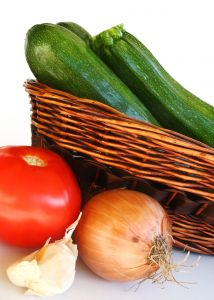
It’s the season that gardeners love and loathe. We loathe it because in the Northern Hemisphere, it is the season of dark, cold, wet, and snow. Gardeners have to stay indoors, out of the garden. However, it is also the season of planning and organizing and buying and swapping seeds, and that is a good thing.
If you plan to eat out of your garden this year, are you ready? I’m not entirely ready, but over the last few years I’ve developed a better understanding of what our family needs from our garden. Granted, we can’t eat entirely from our garden because we have a very small garden, but we can use it to supplement our food supply.
To assess what produce you need for the spring, summer and fall, think about this:
How much produce do you eat during the week, and what do you eat? If you eat two heads of lettuce per week, then you will want eat least that in the spring, summer, and fall. Plan to plant enough so that you’ll get a head’s worth of lettuce every few days, either as a large, whole lettuce or in single leaves, if that is how you like to harvest your lettuce. This means that you need to keep space to stagger your planting to ensure that you have a steady supply of lettuce throughout the season.
When does produce grow in your garden? We have a cooler garden, so it’s slow to get started. However, this also means that the greens are slow to bolt. By understanding your garden’s cycle, you’ll understand when you need to supplement and when you need to plant for to get a crop at the right time.
Understand your garden. What does it produce well? If your garden is great at producing greens like mine is, then plan for it to supplement your spring and summer greens. You may even want to plan for a fall crop as well. Then plan to buy things like squash and tomatoes that your garden does not grow. If your garden is very hot, plan for it to grow a lot of your warm-weather crops and buy the lettuce from a neighbor or at the grocery store. Understanding your garden means that you don’t waste time and seeds, fertilizer and labor trying to grow produce that just won’t yield much in your space.
Are you going to plant for a surplus? Perhaps you want to share with others, sell some produce at a farm stand, or can and freeze some of your produce. It’s all right to have extra, but know what you plan to do with it so it doesn’t go to waste.
What are your plans for the garden this spring?
Image courtesy of nkzs at stock exchange.

